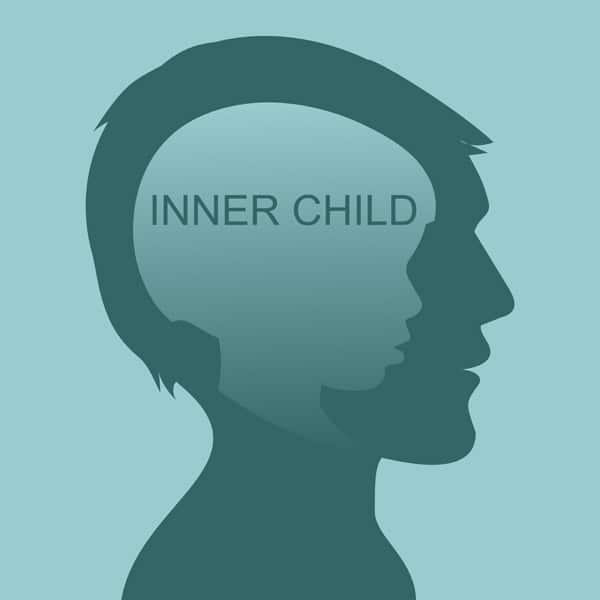The Use of Psychodrama in Treating Sexual Addiction
By Tian Dayton Ph.D., TEP
Note: This article originally appeared in The Huffington Post.
It is the body’s natural mandate to act; we are beings designed for movement and expression. It’s how we get around the world, communicate our feelings and thoughts, eat, sleep, cry, wail, kiss, dance, and sing! We are conceived, carried, born, and die through our bodies. We feel our emotions physically; feeling comes first.
Before words enter the picture, we are engaged in what Stanley Greenspan refers to as a “rich tapestry of gestures” and expressions that communicate our desires and feelings to others. Hopefully, there is a common response from another caring person so that we feel seen, heard, and responded to. This is what lays down the fabric neurologically, emotionally, and psychologically that maps our inner world and our capacity for intimacy, communication, and connection.
These emotional deficits or these empty spaces in our inner world from trauma and sexuality become a part of what we learn to expect when we look to fulfill our very human need to be intimate with another person.
Trauma and Sexuality
These maps function both within and outside of our conscious awareness. They are part of how we learn to attach to another human being. One thing that happens when we’re deeply distressed or frightened by less than satisfactory interactions with significant others is that we go numb inside.
The child who reaches out for comfort and connection but receives coldness, disinterest, or rejection instead of warmth and a friendliness grows up feeling like a stranger in a strange land. It is as if their needs and desires are somehow invisible or inscrutable to those they depend on, or worst, there is something wrong with having them.
The word “trauma” has a big ring to it. In my practice, I believe that the larger, more visible traumas that everyone agrees are wrong or hurtful can be easier to treat than the constant drip, drip, drip of feeling alone in the presence of another. These emotional deficits or these empty spaces in our inner world from trauma and sexuality become a part of what we learn to expect when we look to fulfill our very human need to be intimate with another person.
Sexual Addiction Stems From How We Learned to Connect
Before understanding sexual addiction, we need to go back into the root system of how we learned to connect and compensate for a feeling of disconnection—what we do to fill the empty, anxious hole inside of us.
Unconscious sexual acting out can indicate signs of repressed childhood trauma in adults. It might be seen as both a way to self-medicate unhealed, unconscious emotional and psychological pain and as a way of finally getting the closeness that we have longed for, for a lifetime. But as with any form of acting out, it keeps pain unconscious. Rather than feel the vulnerability and fear that accompany our desire to connect, to love, and be loved, we use the excitation of the chase, the deliciousness of secrecy, or the body chemicals that are part of the sexual experience override feelings of anxiety around intimacy.
One of the more poignant examples of how this gets set up is illustrated by a psychodrama— well, many psychodramas I have done with “Pete.” It is a “model scene” from his childhood home, incorporating the relational dynamics from childhood that are core to his acting out in adulthood.
We have done many versions of this, but here is one capsule. We begin with his walking home from school. As he comes down the sidewalk to his house, he feels excited to see his mother after a long day away from her. His father had gotten him off to school again that morning; mom was “tired,” and she was “sick.” I ask him to soliloquize as he walks, to narrate the goings-on inside his mind:
“I am so excited to tell mom about my “A” on my science project. She’ll be so proud of me. Maybe we’ll go out for a walk together.”
Pete’s childlike grin betrays an innocence and an ability to hope against hope repeatedly. “Mom, I’m home!”
“Mom, I’m home!”
“Mom, I’m…”
Pete goes up the stairs, now again narrating his walk.
“I hope she’s home, where is she, was she sick this morning? Why is she always sick? I want to show her my paper with the “A” on it.
“Mom,” Pete knocks on the door, “Mom, I’m home, I’m here, open your door please.”
“Mom, open your door, Mom I got an “A”, Mom, come on open the door, come on, come on, come…..”
A look of confusion and hurt comes over Pete’s face, it is the look of a child on the face of a man. His shoulders slump and he draws his chin in.
P: “Well maybe it doesn’t really matter, maybe it’s not a very big deal. Maybe…”
Pete falls to his knees in front of her door.
“I might have fallen asleep, I don’t know, sometimes I did, I think I am crying, I am…” At this point, the pain Pete felt while collapsed in a heap in front of a door that would not open, became excruciatingly evident. He let it in in fits and starts, squinting, holding back tears then suddenly belching a little, crying, then nothing, dissociating.
Keeping him engaged in the drama was challenging. Once he’d gotten some real emotion out, I decided to let him reverse roles with his mother, to enter the forbidden space and inhabit, for a moment this inaccessible world that he so longed for. I “interviewed” Pete in the role of his mother.
Tian: “Your son is crying, he wants to come in.”
Pete in the role of his mother: “What?”
T: “I said your son is crying outside your door, he desperately wants to come in.”
P: “Do you have a light, I can’t find my cigarettes.”
Pete describes that his mother was always sitting in a cloud of smoke, that she used one cigarette to light the other.
T: “Your son, are you drunk, can’t you hear me?”
P: “Oh there they are, no I never drink.”
T: “I don’t believe you.”
P: “I never drink, Pete is always ….is school out already?”
T: “He is home and wants to be with you.”
P: “Have you read this new National Geographic Magazine, it’s wonderful, all of these pictures of other countries.”
T: “Your son, he wants you to open your door.”
P: “Right here, look at this one…”
T: “Are you drunk?”
P: “No, I never drink, why do people say that? I never drink.”
At this point I knew that Pete was stuck forever in the reciprocal role with his mother, he was being true to his memories, true to his traumatized mind, to the truth he’d internalized as a boy.
T: “I think you may be drunk right now”.
P: “No, I told you, I don’t do that”.
T: “Where do you keep your bottle?”
P: “Right here, under the bed,” “mom” reached down under the bed and pulled out a bottle of gin.
Pete learned to fill his empty afternoons with a neighbor boy who initiated him into the secrets of sexual play. At the very most basic level, he found somewhere to go on these searingly lonely afternoons. He also began a life of using sex to medicate loneliness. As an adult, his trigger for sexual acting out remained loneliness and rejection, he could be sexually sober for a long time, but if he felt rejected by his wife, he engaged in sexually reactive behavior to medicate the unconscious pain that was triggered by his childhood.
To reverse roles with the parent, and more often than not, feel their pain, confusion, or inability to feel and focus because they were lost in a world of addiction loosens up the memories that have laid petrified in the unconscious.
Understanding Three-Dimensional Trauma Through Psychodrama
Putting this kind of confusion, this weird mix of love and lies out into the here and now through psychodrama therapy, allows us to look at it in three dimensions. It brings what lies in our repeated past out into the present in a concrete form where we can observe it and deal with it. To stand in the shoes of the hurting child that we were and feel their loneliness and pain brings self-compassion. Then, to reverse roles with the parent, and more often than not, feel their pain, confusion, or inability to feel and focus because they were lost in a world of addiction loosens up the memories that have laid petrified in the unconscious.
The relief and release involved in these simple role-plays are quite profound. Not only do we get to feel our pain and finally make some sense of it, we feel our parents’ immaturity and confusion often this, serves to reveal to us that they too were lost, that their inability to give us what we needed was not personal. We were not, in other words, bad or undeserving; we were more or less just in the wrong place at the wrong time. We can gain compassion for ourselves and others. This compassion lights a path to awareness and emancipation from a past that has its grip on our throats.
While interviewed by Tami Simon of Sounds True, The Meadows Senior Fellow Bessel van der Kolk explained, “When you get traumatized, you have a breakdown in your imagination that anything can ever be different than the way it was, that anyone will ever love you or care for you. You don’t know what it feels like to be held and loved. In our field, we tend to be very passive and reflect. We focus on the bad things that happen, but we don’t focus on what is missing. But moving on with life is to take new actions.”
In other words, traditional psychotherapy tends to reinforce the block. By constantly focusing on the past trauma, we strengthen the block against trying new things.
“A compelling point in getting over trauma,” continues van der Kolk, “is to act in ways that are different from the way you have acted. We are a symbolic species and live by our imagination. We continuously imagine what the outcomes will be. If I do this, then this will happen. What you do in so many of these psychodrama techniques is explore. Let’s see what will happen if we do that. Let’s see what it’s like to explore. Let’s see what it feels like to try something else.”
Exploring new ways of being is part of what heals us in psychodrama therapy. I often invite protagonists to choose new parents or their parents how they wish them to be or rearrange the family as they wish. Often to experiment in other words, with different ways of relating, to experience getting what they didn’t get and giving what they felt too blocked to give. It is often in these moments of finally getting what they longed for that the pain of not having it emerges. Working through this pain gives them the ability to be vulnerable to new feelings.
Role-play allows us to practice new behaviors and “role train.” Trauma tends to lock us into repetitive and rigid behaviors. J.L. Moreno, the father of psychodrama, put it this way in a brief conversation with Freud:
He was attempting to explain the difference between psychoanalysis and psychodrama; “Dr. Freud, you analyze their dreams, I give them the courage to dream again.”
References
Greenspan, Stanley, 2000, Building Healthy Minds, De Capo Press, Boston, Mass.
Moreno, JL, 1973 Psychodrama Volume One, Beacon Press, New York, New York.
Simon, Tami, Sounds True, An interview with Bessel van der Kolk



